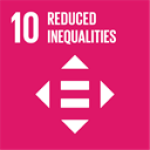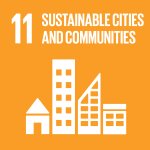Scaling up Climate Resilient Flood Risk Management in Bosnia and Herzegovina
Climate Change in Bosnia and Herzegovina (B&H) has been observed in the continuous rise of the mean annual temperature and significant seasonal and spatial changes in precipitation, that have become more pronounced over the last fourteen years. As a result of these changes, years with damaging floods have become very common. The Third National Communication (TNC) shows that the temperature is expected to increase further until the end of the 21st century, and the variability of rainfall regime and extreme precipitation will further intensify under warmer climate conditions.
The objective of the project 'Scaling up Climate Resilient Flood Risk Management in Bosnia and Herzegovina' is to address increasing vulnerability of B&H communities and livelihoods to intensified climate-induced flood-related disasters. The project will establish an integrated and innovative gender-responsive climate-resilient flood risk management approach, and strengthen institutional, technical, and financial capacity to implement long-term flood risk management strategies, including a combination of structural and non-structural measures and ecosystem-based approaches.
One of the root causes of increasing vulnerability and damages from floods is lack of quality climate data and flood forecasting and early warning system. As a result, the BiH authorities are unable to make qualified decisions and the affected population cannot effectively cope with the risk. Lack of climate information and risk knowledge increase the vulnerability and costs from flooding. The project will strengthen the use of climate information, flood forecasting, early warning, and emergency response systems to enhance adaptive capacity and resilience of at-risk communities.
The project is aligned with the UN multi-partner initiative “Early Warnings for All (EW4All)” announced by the UN Secretary-General in March 2022 with the aim to promote universal coverage of the early warning, and will contribute to the implementation of EWS4All Executive Action Plan developed in March 2023.
- Image

- Image

- Image

Expected outcomes
Outcome 1: Climate informed gender-responsive impact-based FFEWS and increased generation and use of climate data reduce vulnerability to flood related disasters
Outcome 2: Vulnerable communities in B&H including women, children, disabled and elderly are better protected from and less exposed to climate induced flood risks through a combination of structural and non-structural flood risk reduction solutions
Project details
Levels of intervention
- District
- National
Source of funds
- Green Climate Fund
Key implementers
- Country Office
- National Governments
- Private Sector Partners
- United Nations Development Programme (UNDP)
Funding amounts
Project partners
- Bosnia and Herzegovina Ministry of Foreign Trade and Economic Relations
- United Nations Development Programme (UNDP)
- Green Climate Fund
Project dates
Introduction
Climate Change in Bosnia and Herzegovina (B&H) has been observed in the continuous rise of the mean annual temperature and significant seasonal and spatial changes in precipitation, that have become more pronounced over the last fourteen years. As a result of these changes, years with damaging floods have become very common. The Third National Communication (TNC) shows that the temperature is expected to increase further until the end of the 21st century, and the variability of rainfall regime and extreme precipitation will further intensify under warmer climate conditions.
The objective of the project 'Scaling up Climate Resilient Flood Risk Management in Bosnia and Herzegovina' is to address increasing vulnerability of B&H communities and livelihoods to intensified climate-induced flood-related disasters. The project will establish an integrated and innovative gender-responsive climate-resilient flood risk management approach, and strengthen institutional, technical, and financial capacity to implement long-term flood risk management strategies, including a combination of structural and non-structural measures and ecosystem-based approaches.
One of the root causes of increasing vulnerability and damages from floods is lack of quality climate data and flood forecasting and early warning system. As a result, the BiH authorities are unable to make qualified decisions and the affected population cannot effectively cope with the risk. Lack of climate information and risk knowledge increase the vulnerability and costs from flooding. The project will strengthen the use of climate information, flood forecasting, early warning, and emergency response systems to enhance adaptive capacity and resilience of at-risk communities.
The project is aligned with the UN multi-partner initiative “Early Warnings for All (EW4All)” announced by the UN Secretary-General in March 2022 with the aim to promote universal coverage of the early warning, and will contribute to the implementation of EWS4All Executive Action Plan developed in March 2023.



Project details
The objective of the project 'Scaling up Climate Resilient Flood Risk Management in Bosnia and Herzegovina' is to address increasing vulnerability of B&H communities and livelihoods to intensified climate-induced flood-related disasters. The project will establish an integrated and innovative gender-responsive climate-resilient flood risk management (FRM) approach, strengthen institutional, technical and financial capacity to implement long-term FRM strategies, including a combination of structural and non-structural measures and ecosystem-based approaches. The project will strengthen the use of climate information, flood forecasting, early warning and emergency response systems to enhance adaptive capacity and resilience of at-risk communities. The project is aligned with the new UN multi-partner initiative “Early Warnings for All (EW4All)” announced by the UN Secretary-General in March 2022 with the aim to promote universal coverage of the early warning, and will contribute to the implementation of EWS4All Executive Action Plan developed in March 2023.
One of the root causes of increasing vulnerability and damages from floods is lack of quality climate data and flood forecasting and early warning system. As a result, the BiH authorities are unable to make qualified decisions and the affected population cannot effectively cope with the risk. Lack of climate information and risk knowledge increase the vulnerability and costs from flooding.
The project will scale-up successful FRM solutions and technologies tested through a UNDP/GEF-Special Climate Change Fund project in Vrbas River Basin, promote and implement technological, institutional and financing innovations in the flood risk management sector, and will leverage considerable public and private investment into resilient flood risk management. The latter will be achieved through the development of a flood risk management investment framework supported with incentives, risk transfer products and private sector partnership models, The willingness of the B&H private sector to engage with the intervention is confirmed through the materialized co-financing commitments, surveys and consultations carried out during the project design phase.
- District
- National
- Country Office
- National Governments
- Private Sector Partners
- United Nations Development Programme (UNDP)
Total beneficiaries: 2.777 million (799,445 direct + 1.977 million indirect)
- Bosnia and Herzegovina Ministry of Foreign Trade and Economic Relations
- United Nations Development Programme (UNDP)
- Green Climate Fund
News
Key results and output
Outcome 1: Climate informed gender-responsive impact-based FFEWS and increased generation and use of climate data reduce vulnerability to flood related disasters
Output 1: Fully integrated impact-based Flood Forecasting and EWS facilitates timely preparation and response
Outcome 2: Vulnerable communities in B&H including women, children, disabled and elderly are better protected from and less exposed to climate induced flood risks through a combination of structural and non-structural flood risk reduction solutions
Output 2: Non-structural flood risk reduction measures and nature-based solutions mainstreamed in sectoral policies and plans and effectively contribute to protection of people and livelihoods from climate-induced flood risk
Output 3: Climate-proof flood protection measures scaled-up through new and improved national and local investment frameworks increasing resilience of the most vulnerable groups to climate induced flooding.
Reports & publications
Videos & multimedia
Newsfeed
Contacts
- UNDPRegional Technical SpecialistNataly Olofinskaya


